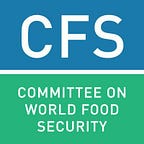Ocean’s 2030
Our oceans are our future
Oceans are the lifeblood of humankind. They occupy two-thirds of the earth’s surface, hold 97% of the total water on the planet and provide more than half the oxygen we breathe.
Without them, simply, life couldn’t exist: wherever you live and whatever you do — the air you breathe, the water you drink and the food you eat either comes from or has been transported by the ocean!
Oceans are important for food security and nutrition. Today fish accounts for almost 20% of the average animal protein intake for over 3 billion people, an amount that can triple in countries such as Ghana, Cambodia or Bangladesh where fish is traditionally part of the local diet. Fish contains amino acids and micronutrients essential for human nutrition and the increased consumption of fish could dramatically improve the diets of low income populations.
Unfortunately, today oceans and fisheries are more threatened than ever before. The demand for fish has tripled at world level since the 1950s and it does not seem to be slowing down. At the same time the percentage of over-exploited and depleted marine stocks worldwide appears to be increasing, while the number of under fished and fully fished areas is decreasing.
Another factor is the effect of climate change: the rising water temperature is damaging oceanic habitats such as coral reefs and pushing many species to migrate towards the poles in search of cooler waters. Combined with other factors such as severe pollution, ecosystem degradation and the rising of sea levels, this could disrupt the livelihoods of fishing-dependent communities and negatively impact productivity and prices.
However, if governments, development organizations, research institutes and other stakeholders work together to address these issues, not everything is lost.
In 2014 the Committee on World Food Security (CFS) produced a set of policy recommendations to make sure that a sustainable future for fisheries and aquaculture for food security and nutrition is possible, informed by an independent, evidence based report from the CFS High Level Panel of Experts.
First, fish should get the position it deserves in food security and nutrition strategies, policies and programmes. This mean encouraging fish consumption without forgetting about the problem of over-fishing and marine stock depletion. Initiatives supporting the sustainability of fisheries and aquaculture and climate change adaptation strategies should be strongly advocated by all stakeholders.
Supporting small-scale fisheries is also vital, as they account for 90% of all fisherfolk in the world and are key to sustaining the livelihoods of marginalized and vulnerable populations in developing countries. This also means protecting small-scale fisheries and aquaculture from disadvantageous trade policies and promoting the inclusion of food security and nutrition in fish trade policies.
The right policies could also improve the working conditions in the fisheries and aquaculture sector, providing social protection, labour rights and gender equality to the over 200 million directly or indirectly employed in fisheries.
The conservation and sustainable use of the oceans, seas and marine resources is at the core of the United Nations Sustainable Development Goal (SDG) 14 on life below water. Coinciding with World Oceans Day, the United Nations has organized its first Ocean Conference with the aim to be the game changer that will reverse the decline in the health of our oceans for people, planet and prosperity.
Ultimately, we must never forget how important oceans and fisheries are for everyone’s food security and nutrition. After all, our oceans are our future.
The Committee on World Food Security (CFS) is leading multi-stakeholder platform for food security and nutrition policy guidance. This article is based on the CFS High Level Panel of Experts on Food Security and Nutrition report on Sustainable fisheries and aquaculture for food security and nutrition, produced in 2014. At CFS41 a set of policy recommendations on Sustainable fisheries and aquaculture for food security and nutrition were endorsed. These policy recommendations can be used by any stakeholders.
